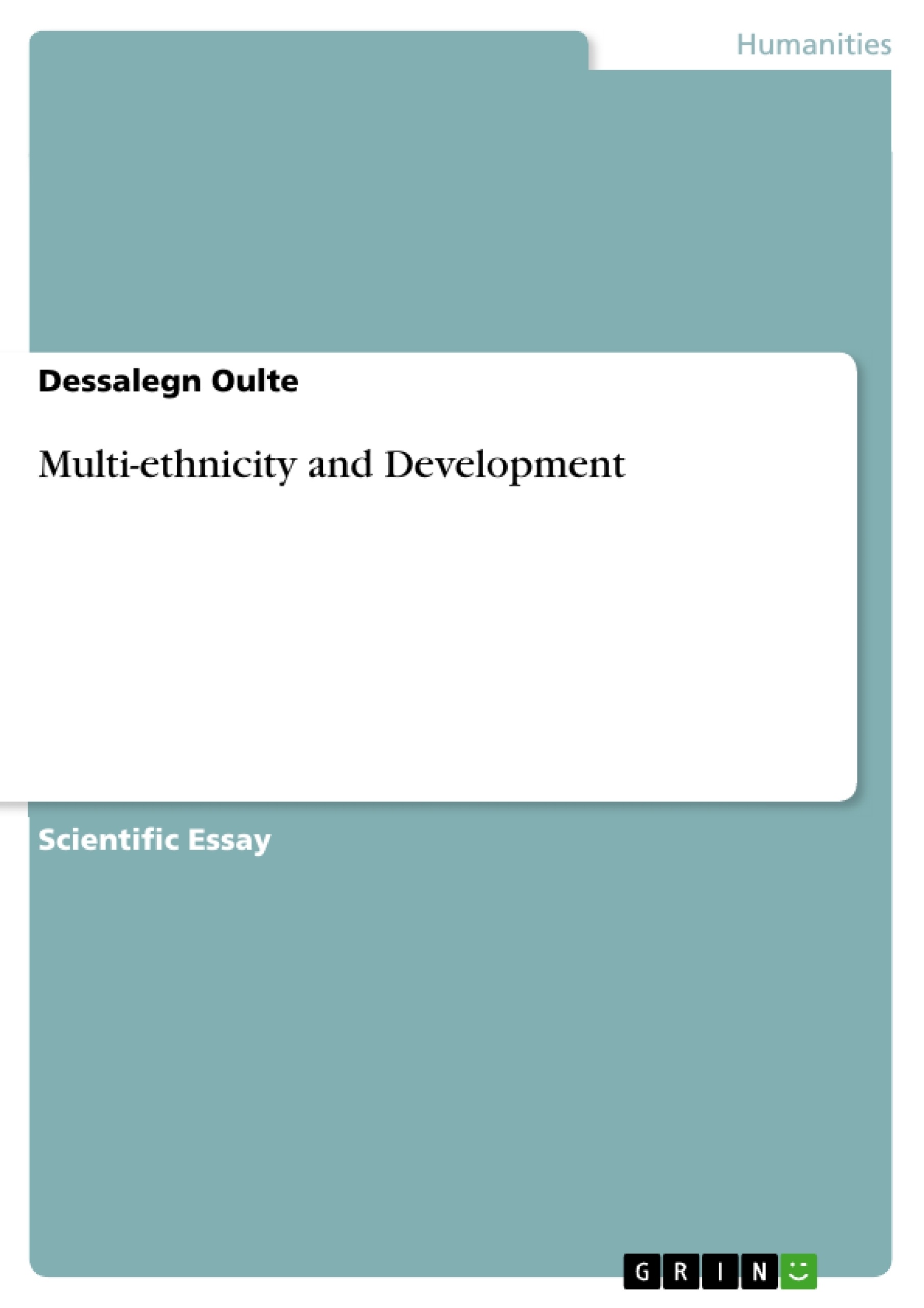Ethnicity is fundamental issue in human life as 90 percent the world’s nations are composed of two or more ethnic groups. The action-reaction relationship existed between dominant group and minority groups often negatively affected many nations’ development in different social, political economic perspective. Ethnic background of a certain population determines cooperative or non-cooperative results of communication as it has been evidently seen that majority of world conflicts are a result of, or related to ethnic issues. Factors eliciting conflict such as collective disadvantage ,lose of political economy and repressions are aspects of ethnicity.The reasons ethnic difference lead to conflict include:
A sense of injustice because of resource distribution
Economic or political completion
Prejudice
Discrimination
Hostility
Unwillingness to interact
Ethno centrism
Ethnocide
Forced assimilation
Cultural colonialism
Sharp Intolerance comes from the difference of language, skin color, religious beliefs ,customs and gender are among others
Inhaltsverzeichnis (Table of Contents)
- Introduction: Multi ethnicity and development
- Advantages and disadvantages of multi-ethnicity
- How Multi Ethnicity Affect Development?
- Advantages and Disadvantages Of Assimilation And Multi Cultural Policies In Ethiopia Case
- Policy Recommendation to Ethiopian Government
Zielsetzung und Themenschwerpunkte (Objectives and Key Themes)
This paper aims to explore the complex relationship between multi-ethnicity and development. It examines the potential benefits and drawbacks of a multi-ethnic society, analyzing the ways in which ethnicity can influence a nation's progress. The paper then focuses on the specific case of Ethiopia, assessing the advantages and disadvantages of assimilation and multicultural policies in the context of its multi-ethnic society.
- The impact of multi-ethnicity on national development
- The role of ethnic conflict in hindering progress
- The effects of discrimination and prejudice on minority groups
- The effectiveness of assimilation and multicultural policies in promoting harmony
- Policy recommendations for achieving sustainable development in multi-ethnic societies
Zusammenfassung der Kapitel (Chapter Summaries)
- Introduction: Multi ethnicity and development: This chapter provides a brief overview of the importance of ethnicity in the world's nations, highlighting the potential for conflict between dominant and minority groups. It establishes the premise that ethnicity plays a crucial role in shaping a society's development.
- Advantages and disadvantages of multi-ethnicity: This chapter examines the potential benefits and drawbacks of a multi-ethnic society, presenting arguments for and against the idea that ethnic diversity is a source of conflict. It explores examples of countries with diverse populations, highlighting cases of both harmony and conflict. It also discusses the role of prejudice and discrimination in exacerbating ethnic tensions.
- How Multi Ethnicity Affect Development?: This chapter delves into the direct effects of multi-ethnicity on national development, focusing on the dynamics between dominant and minority groups. It explores how power structures and resource allocation can lead to conflict and exploitation, and examines historical examples of genocide and violence fueled by ethnic tensions.
Schlüsselwörter (Keywords)
This paper examines the complex relationship between multi-ethnicity, development, conflict, discrimination, assimilation, multiculturalism, and policy recommendations. It focuses on the impact of ethnic diversity on a nation's progress and explores the challenges and opportunities presented by multi-ethnic societies. The paper specifically examines the case of Ethiopia, considering the effectiveness of different approaches to managing diversity within a developing nation.
Frequently Asked Questions
How does multi-ethnicity influence national development?
Multi-ethnicity can both enrich a nation and hinder progress through conflict, depending on how dominant and minority groups interact and how resources are distributed.
What are the main causes of ethnic conflict mentioned in the paper?
Key factors include a sense of injustice in resource distribution, economic competition, prejudice, discrimination, and forced assimilation.
What is the focus of the Ethiopia case study in this document?
The paper assesses the advantages and disadvantages of assimilation versus multicultural policies within the specific context of Ethiopia's diverse society.
What are the negative social consequences of ethnic dominance?
Dominance can lead to collective disadvantage for minorities, cultural colonialism, ethnocide, and sharp intolerance based on language or religion.
What kind of policy recommendations does the author suggest?
The author provides recommendations aimed at the Ethiopian government to achieve sustainable development and harmony in a multi-ethnic environment.
- Quote paper
- Dessalegn Oulte (Author), 2011, Multi-ethnicity and Development, Munich, GRIN Verlag, https://www.grin.com/document/170855



